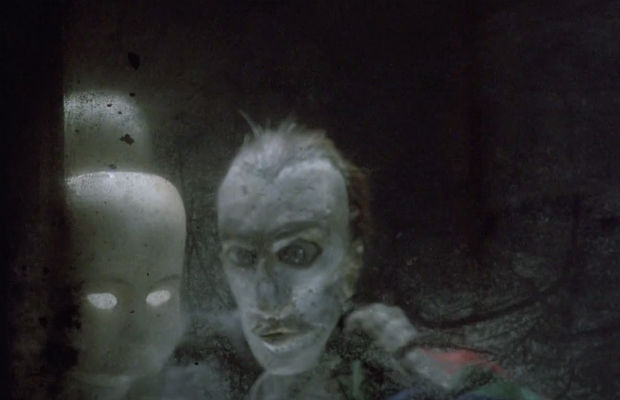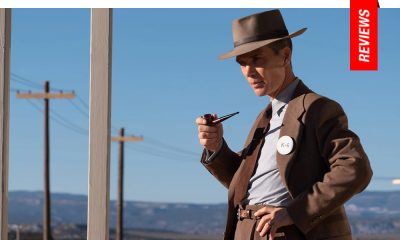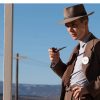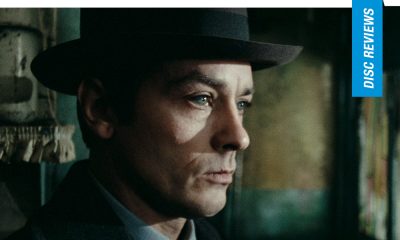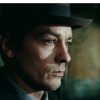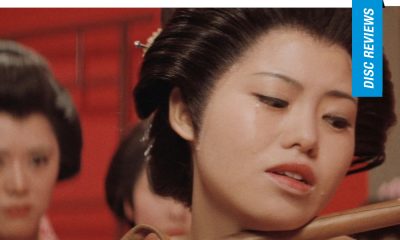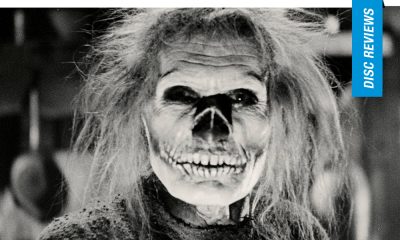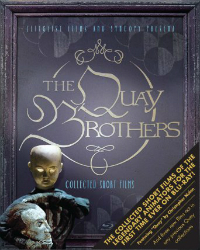Disc Reviews
The Quay Brothers: Collected Short Films | Blu-ray Review
Those prone to mental disturbances and nightmares, or possess a fear of dolls, dirt or general unpleasantries would do well to avoid the Brothers Quay and the bulk of their unconscious unfurling oeuvre, but everyone else is due a hearty recommendation. Take it from Christopher Nolan, who recently wrapped a documentary, simply titled Quay, on the mysterious identical twin directors and curated a selection of 35mm prints of their work to hit the road on a new theatrical tour. Like so many others, Nolan caught a stray Quay film on British cable by accident, and unable to catch the names of its creators through the swirl of credits in beautifully stylized calligraphy, was haunted by its alluring, impenetrable imagery.
From their minutely detailed and grittily textured beginnings in the early ’80s with films like The Cabinet of Jan Svankmajer, in which a professor literally empties the head of his student, teaches him lessons on visual art via dream logic and fills the void in his skull with an open book, there was much evidence of the Quays’ interest in the subconscious and the warpable malleability of perception. Like Lynch and Buñuel before them, cinema was and continues to be but a porthole into a world in which we are free to explore our deepest fears and anxieties without the repercussions of consciousness. In films like Street of Crocodiles, sexual repression is the metronomic engine, or infinitely unfulfilled bachelor machine as the Quays would call it, that powers the whole cloistered and screw pierced universe of puppetry and eyeless dolls. Though their visual style resembles the earlier work of their beloved Walerian Borowczyk and their Czech brethren in stop motion grotesques, Jan Švankmajer, their films delve deeper into untapped legions of the mind.
Going further, a theme that underlies and unsettles nearly the entire Quay filmography is that of the futility of human communication and the possibility of this being due to mental illness. In Absentia deals directly with this idea, centering around a woman bound in an asylum desperately struggling in vain to write her lover on the outside, doomed to replicate the destruction of her breaking/sharpening/shortening pencils. More esoteric is the mysterious man made of wire found in Rehearsals for Extinct Anatomies who incessantly rubs a grotesque bump on its forehead. The inference is somewhat sexual, but the act of repetitious rubbing itself resembles more the movement of the severely mentally handicapped, incapable of cognitive connection and thus constrained to the self stimulus of physical sensation. This fact becomes ever more clear when looking at the psychologically fractured and demented visual subtexts that float throughout their films.
Mental illness may be a recurring theme in the Quay cabinet of wonders, but it is not the only kind of medical anomaly they are interested in. Alongside their affinity for stop-motion, the filmmakers have put together a variety of documentary pieces, two of which deal with the horrors found within medical museums. Through the Weeping Glass: On the Consolations of Life Everlasting sees the brothers exploring the weirdo riches of Philadelphia’s Mütter Museum, while The Phantom Museum celebrates the odd treasures kept safe within Sir Henry Wellcome’s private collection of medical and metaphysical texts and beyond.
Fixated on medically unnerving anomalies and oceans of dust covered unconsciousness while working within a cloistered medium in which whole worlds are created with found doll parts, dirty mirrors, lost machinery and a few key musical collaborators to set the right hair-raising tone, The Brothers Quay have no equal.
Disc Review:
Pieced together by Zeitgeist Films and Christopher Nolan’s Syncopy Films, this set is quite an impressive little package. Wrapped up in a handsomely slim slipcase, the single Blu-ray disc comes packed with 15 short films, including The Cabinet of Jan Švankmajer (1984, 14 min), This Unnameable Little Broom (or The Epic of Gilgamesh) (1985, 11 min), Street of Crocodiles (1986, 21 min), Rehearsals for Extinct Anatomies (1988, 14 min), Stille Nacht I – Dramolet (1988, 1 min), The Comb (1990, 18 min), Anamorphosis (1991, 14 min), Stille Nacht II (Are We Still Married?) (1992, 3 min), Stille Nacht III (Tales from Vienna Woods) (1993, 4 min), Stille Nacht IV (Can’t Go Wrong Without You) (1994, 4 min), In Absentia (2000, 20 min), The Phantom Museum (2003, 12 min), Maska (2010, 24 min), Through the Weeping Glass (2011, 31 min), and Unmistaken Hands (2013, 26 min). Generally, the visually crystal clear quality and aurally pristine is consistent, though as the Quays play with the stretch of anamorphosis in their later films, it becomes hard to tell if the imagery you are witnessing is meant to be as warped as it appears.
Audio Commentary Tracks with the Brothers Quay
Not every film gets a commentary, but those deemed worthy enough include The Unnameable Little Broom, Street of Crocodiles, Stille Nacht I – Dramolet, Stille Nacht II (Are We Still Married?), Stille Nacht III (Tales from Vienna Woods), and In Absentia. Each track the filmmakers impart a wealth of knowledge on the technical aspects of production and the creative impulses that drove them to lens these films.
Quay
Shot in 35mm, this new short doc by Christopher Nolan sheds much light on the mysterious creative process that has shaped such wildly original and deeply unsettling films.
Booklet
Essentially the key to discerning the origins of each and every work included within, this booklet contains not only an introductory essay by Christopher Nolan and an extensive critical examination by Michael Atkinson, but a thorough glossary of Quay Brothers icons, influences and inspirations by Michael Brooke. It’s a must read.
Final Thoughts:
The worlds hand crafted by the Brothers Quay are deeply disturbing, endlessly alluring, masterfully animated and strangely impenetrable in equal measure. Even their closest comparison in Jan Švankmajer is of a different ilk, more interested in the shock of the audience than the psychic shocks that reverberate throughout the arcane architectures of the Quays’ unconscious. Though these films are certainly not for everyone, those interested in the malleability of the mind, the physical grotesques of our medieval history and the possibilities of traditional table top animation would do well to give this set a shot. Zeitgeist has certainly loaded it to the brim with goodies, just in time to set your mind for the horrors of holiday spirit.
Film Review: ★★★½/☆☆☆☆☆
Disc Review: ★★★★/☆☆☆☆☆



